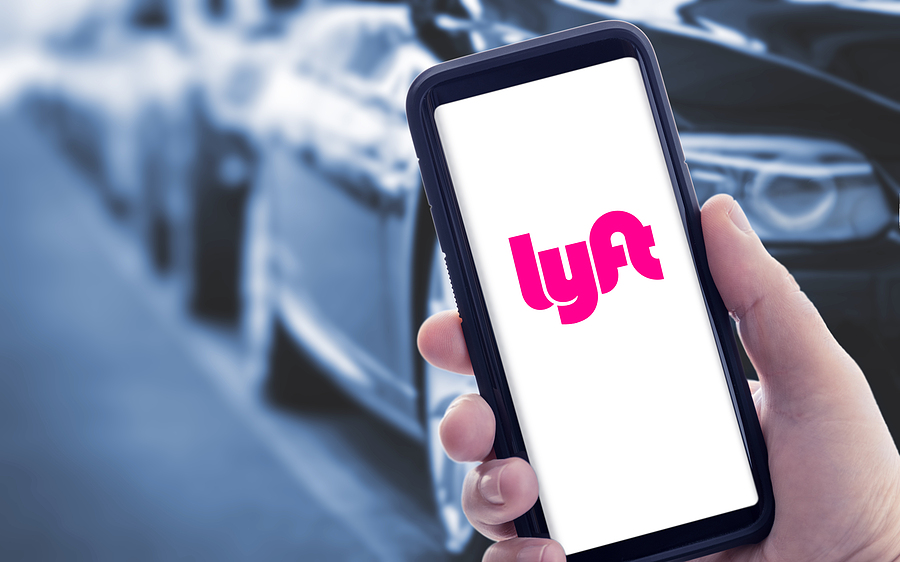A Florida woman has captured the nation's attention this month after she made the heart-wrenching decision to keep her baby after allegedly being raped by a Lyft driver in Orlando. Her story has sparked new conversations about the challenges survivors of sexual assault face and whether companies like Lyft and Uber, who pair a stranger with an often vulnerable passenger, are doing enough to keep their customers safe. This article delves into her journey and the broader implications of her decision.

How the Orlando Woman Was Attacked after Her Lyft Ride
The plaintiff, an Orlando resident, recounted a distressing experience during a Lyft ride that she expected to be a regular trip. It quickly became anything but. It started when the driver asked her to move to the front seat, started complimenting her, then inappropriately touching her, according to the filed lawsuit.
When they arrived at her destination, the driver allegedly insisted on helping her inside because she was supposedly intoxicated despite her protests. Once inside, he raped her.
The survivor and plaintiff alleges that she became pregnant as a result of rape and ended up giving premature birth to her baby at just 33 weeks.
As the civil lawsuit states, this horrible incident has left the plaintiff with significant mental health issues and financial burdens.
Perhaps the most remarkable aspect of this story is the survivor's decision to keep her baby even though it was conceived under such a traumatic circumstance. In this sad and impossible moment, she found the strength to keep the baby, further outlining the need for reproductive choice and help for survivors
Lyft Claims The Plaintiff Was Not Technically Using the App At The Time of the Assault
Lyft's response to the allegations is predictable; they are dodging responsibility.
Lyft claims that the driver provided a ride earlier in the night to the victim who used the app. But then, a separate non-Lyft arrangement was made between the victim and the driver. Lyft argues that a significant amount of time passed between the initial ride and the alleged assault.
The plaintiff’s attorney, Rachel Abrams of Peiffer Wolf, stated, “This incident absolutely involved a trip booked through the Lyft App, and Lyft’s attempt to deflect liability is a perfect example of its bad faith handling of this crisis…There is no dispute Tabatha’s Lyft driver repeatedly raped her resulting in pregnancy and the birth of her son.”
But the plaintiff said she saw that driver only once that night: when she ordered a Lyft ride from a bar to where she was staying. The ride was ordered by her friend for her but the friend did not get in the Lyft vehicle with her.
The plaintiff—in the most telling of situations in which a woman feels the need to tell the public she did not want to be raped (because of course she didn’t!)—told CCN, “I want to tell everyone … that I did not want it. I had never met that man before in my life.”
A Lyft receipt from the ride in question that was provided by the plaintiff's attorney shows an 11-minute ride shortly after midnight from a residential area to a street lined with restaurants and bars.
The attorney said the receipt does not reflect the full ride and that they believe the driver engaged in suspicious behavior by “ending” the ride on the app shortly after the victim got in the car at the bar. The victim would not have known this because she did not order the Lyft on her phone; the friend did.
Lyft’s Audacity to Discredit the Victim
[Trigger warning: talk of sexual assault related to victims being discredited.]
Lyft has also noted that the plaintiff did not report the alleged assault to the police, or Lyft at the time.
The plaintiff said that at the time she feared she wouldn’t be believed. Well, guess what? In the US, 2 out of 3 rapes are not reported to police, often because victims fear retaliation or not being believed, according to RAINN.
Of course, victims want to report being raped by a strange man who violated them in their own home and left them pregnant and with a constant reminder of their rapist. But they fear, no one will believe them (check), I was drunk so people will think I wanted it (check), who will take care of my children during this ordeal (check), most rapes are never solved and most rape kits are never processed (check), and the media and the other lawyers will make me look like a slut (check). Of course, women and men who are attacked don’t report 2 out of 3 rapes.
Lyft’s Audacity to Avoid Responsibility
Lyft claims the alleged rape from 2019 did not take place while using the Lyft app but rather involved a separate trip arranged between the driver and passenger.
But don’t worry, not everyone is in danger, just 1 in 100, as Lyft noted in a statement saying that more than 99% of rides on the platform occur without any safety report.
Means and her lawyer dispute Lyft’s characterization of the assault as happening outside of an app-initiated ride.

This Lawsuit Is One of Many Civil Sexual Assault Lawsuits Against Lyft
The plaintiff's lawsuit is just the latest legal action against a rideshare company over alleged sexual assault or misconduct. Lyft has faced dozens of sexual assault lawsuits—much like the lawsuits its competitor, Uber, is facing—over the last few months for failing to protect passengers from sexual assault and for failing to do anything about the allegations when they are reported, reflecting a troubling pattern within the rideshare industry
“By failing to take reasonable steps to confront the problem of multiple rapes and sexual assaults of Lyft passengers by Lyft drivers, Lyft has acted in conscious disregard of the safety of its passengers, including the plaintiff, [and] has breached its duty of reasonable care,” the lawsuit says.
Is Riding with Lyft Safe?
Some states have tried to implement tighter safety restrictions for rideshare companies like Lyft and Uber, while also increasing protections for Uber and Lyft drivers.
In Illinois, lawmakers proposed a bill that would hold Lyft and Uber to a higher safety standard. Both companies fought the bill.
Lyft claims that its service is safe, noting that sexual assaults are rare and pointing to increased safety measures it has introduced, like being able to “share” your ride details with a friend, a new emergency alert feature, a 24/7 safety team, and a safety check-in feature which automatically send a notification to the passenger to make sure they are ok if the rider cancels the trip after the pickup, goes out of the way, or stop for an unusual amount of time.
So, with the safety features in place, it does seem that riding with Lyft is somewhat safe. However according to Lyft’s own data, 1 in 100 people are assaulted, as we noted above.
Additionally, in their Community Safety Report, Lyft shows that they had 4000+ incidents of sexual assault between 2017 and 2019. This includes 2300 incidents of non-consensual touching of a sexual body part, and most disturbingly, 360 incidents of forced penetration (rape, though other types of rapes were reported in separate categories).
According to Lyft’s report which revealed many thousands of sexual assaults, this is a low number compared to the number of rides that are delivered each year—unless, of course, you are one of those 4000 or 360 people.
The report goes on to try to minimize incidents of:
- Non-Consensual Kissing of a Non-Sexual Body Part
- Non-Consensual Touching of a Sexual Body Part
- Non-Consensual Kissing of a Sexual Body Part
- Attempted Non-Consensual Sexual Penetration
- Non-Consensual Sexual Penetration
Need help with a Lyft sexual assault lawsuit?
If you were sexually assaulted while you were a passenger in a Lyft, consider contacting an experienced Lyft Sexual Assault Lawyer.